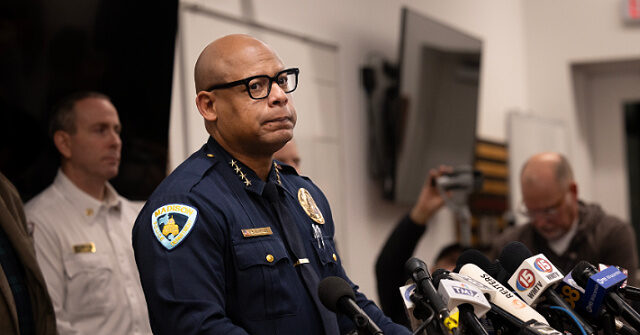During a recent press conference, Madison Chief of Police Shon Barnes was questioned about the alleged shooter’s sexual identity amidst circulating rumors about whether the shooter was transgender. In his response, Chief Barnes emphasized that questions regarding the shooter’s gender identity were not relevant to the violent incident that occurred. He stated, “I don’t know whether [the shooter] was transgender or not, and quite frankly, I don’t think that’s even important.” This indicates his belief that focusing on the shooter’s identity detracts from the significance of the tragedy and the community’s need for healing and understanding.
Barnes clarified that the violence of the day should not be connected to how the alleged shooter might identify. He urged the public to refrain from letting personal biases shape the narrative surrounding this crisis, stressing that the priority should be on the victims, especially the children affected by this tragic school shooting. His remarks highlight a concern about the politicization of such events and how narratives can be twisted to suit agendas rather than focusing on the immediate aftermath of a tragedy and its implications for community safety.
The Chief’s comments reflect a broader issue where discussions about events like mass shootings often delve into the identities of the perpetrators rather than the underlying causes of violence. By emphasizing that a person’s gender identity does not explain their actions, Barnes is advocating for a more nuanced understanding of violence that transcends identity politics. He urges the media and the public to maintain focus on the immediate needs of those affected and the long-term solutions to such acts of violence, rather than engaging in speculative discussions.
In summarizing his point, Chief Barnes noted, “We had people show up to work today to help kids be better who are not going home.” This poignant statement speaks to the grave consequences of the shooting and the work that must be done to support the victims and their families. It serves as a reminder of the human cost involved in these incidents and the importance of community support in the aftermath of such tragedies. This emphasis on empathy and action underscores Barnes’s stance against divisive narratives that can obscure the pressing need for healing and assistance.
As the event unfolded, the narrative surrounding mass shootings remained complex and often fraught with debate over identity, motive, and societal responsibility. While discussions about gun control, mental health, and societal violence are critical, it is equally vital to approach these tragedies with sensitivity, acknowledging the loss of life and the trauma experienced by many. Barnes’s insistence on prioritizing the current situation and the tangible needs it generates exemplifies a responsible approach to public communication in times of crisis.
In conclusion, the remarks from Chief Shon Barnes shed light on the need to focus on effective responses to tragedy rather than the identities of those involved. By dismissing the relevance of gender identity in the context of a mass shooting, he suggests that the conversation should be redirected towards understanding and preventing such acts of violence. This calls for a communal effort to support victims and seek solutions that address the root causes of violence in society, reinforcing the importance of unity and empathy in facing such challenging circumstances.

